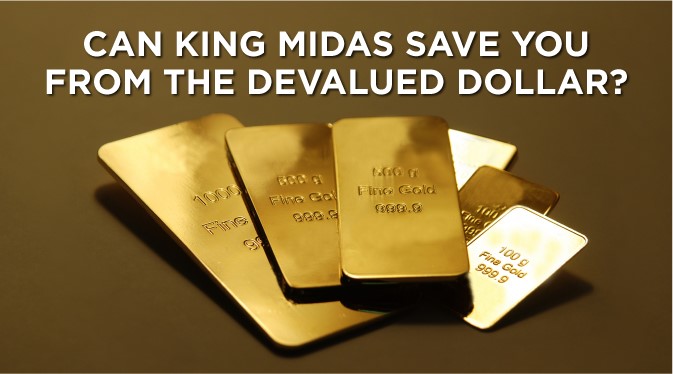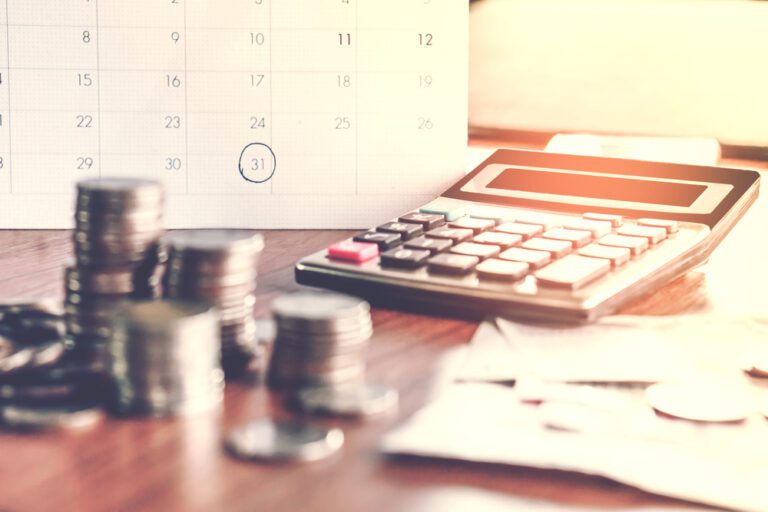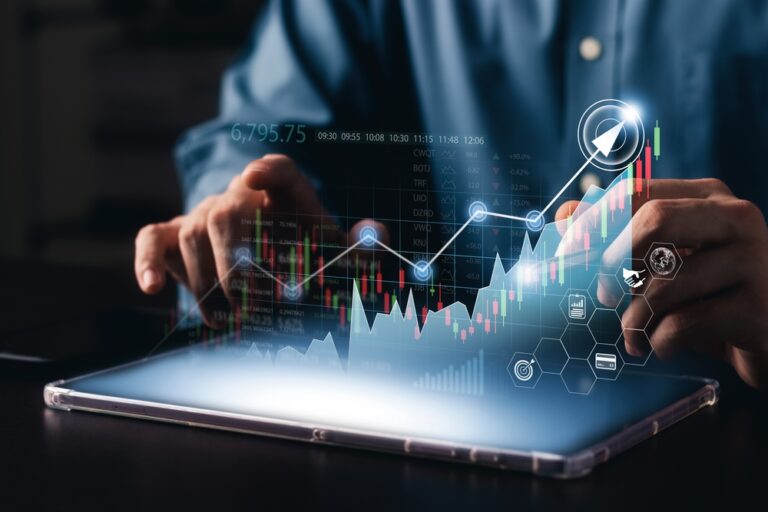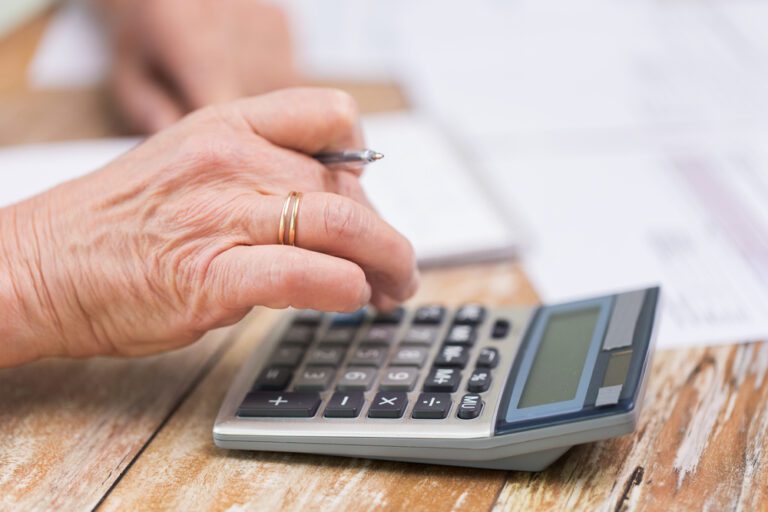Humanity’s love affair with gold is as old as civilization. It’s no doubt the metal of choice used throughout history as coinage. In fact, until 1933 our U.S. dollars were backed by it. Though you can no longer take your paper bill to a bank and trade it for an ounce of gold, fans of investing in precious metals agree that these real commodities are a good way to keep your portfolio balanced.
Today, the price of gold is determined by demand and is still a major financial asset for countries and central banks as a way to hedge against loans made by the government. With trillions of dollars in debt, you have to ask yourself how much your money (weather digital or paper) is worth. It may be time to think about investing in precious metals. Let’s dive a little deeper into gold specifically.
Midas Touch
With a small amount of study, you will come to the conclusion that The Federal Reserve (The Fed) is even more powerful than the President of The United States. At this time, The Fed has the power to continue printing money from thin air and put it into circulation in an attempt to improve the economy. Imagine with us if you will—it’s not an unlikely scenario that through reflationary policy, the Fed will wake up tomorrow and adjust interest rates to the point where gold is worth, say, $5,000 per ounce instead of today’s value of $1,200 an ounce. That will mean our money is then partially backed by gold and will balance out the disparity between paper money and gold, hooray! But it will also mean that our bank accounts are worth a lot less than they were yesterday.
In his book, The New Case for Gold, author Jim Rickards warns: “Digital wealth is subject to power outages, infrastructure and exchange collapses, hackers, and online theft. What good is even a billion-dollar portfolio if it can be wiped out overnight? What if the government shuts down the banks and reprograms the ATMs to limit you to $300 a day for gas and groceries?”
We’re not telling you this as a doomsday warning; we’re just showing you the volatility of using savings accounts and the stock market as a way to save for the long term. The history of gold is an indicator that in an economic downturn, it will likely be the metal of choice used to adjust the value of “money.” Investors typically buy gold when they sense financial danger. That’s because gold has preserved wealth through economic depressions, stock market crashes, and every kind of crisis imaginable. It’s the ultimate form of wealth insurance.
Beginner’s Advice
So you’ve decided that game of digital and paper money no longer makes sense for you. Where do you start investing in gold and other precious metals? The most important steps are to learn all you can and find a trusted partner.
In his business, Gold and Silver For Life, Minesh Bhindi wants to share his unique strategy to provide an opportunity for long-term investors all over the world to protect themselves with gold and silver. His philosophy is to invest defensively, safely, and strategically.
For more guidance visit read the book by Michael Malone, Guide To Investing in Gold & Silver: Protect Your Financial Future.
If you’re interested in bullion (bars and coins that you can store yourself), D Mitchell offers a beginners checklist in his article on LinkedIn, How To Buy Gold And Precious Metals Safely.
When searching for a trustworthy dealer in the metals business, you should look for someone who is happy to offer you advice, wants to build a rapport, and guide you to the best deals and products that suit you. As a guide, ask yourself these questions:
- • Is the bullion dealer’s website easy to understand and use?
- • Are the people behind the business featured?
- • Is the website frequently updated with relevant news and product ranges?
- • Can you buy online?
- • Are the prices live and updated and can you trade on the prices with immediate effect?
- • Is the physical location of the dealer in a regulated area? Location or more importantly jurisdiction of the company, for example Singapore and London have very strong regulatory laws encapsulating companies, accounts, audits, and the overall administration of companies. Any wrong-doing or misrepresentation is heavily prosecuted.
- • Does the bullion dealer have strong ties to the refiners and mints themselves? This should be stated on their website with links to the refiners, mints own websites where you can view the companies that are represented as official distributors.
- • Are all their gold bars 999.9 and do they physically deliver to you?
- • Do they offer secure storage options which are fully allocated under the customer’s name?
Avoid these scams at all costs:
- • Unscrupulous dealers who offer you unallocated storage of your metals.
- • Dealers who state you will be rewarded monthly with a “Hibah” or gift, a percentage of your original investment.
- • Dealers who cannot prove where they are sourcing the products they are offering from in the first place.
Our advice in investing in precious metals is the same we’ll give clients about any investment. Learn all you can, proceed with caution, and plan to be in it for the long haul. Any time you can turn paper money into something real, you should take that opportunity.
You’re ready. Now how do you get cash to invest in gold? Well, we can help you there too. We know a financial strategy that can offer life insurance, liquid cash, and a guaranteed return all in one product. Allow us to provide you with more financial education and ongoing coaching that will stand the test if time—regardless of the economic weather.
The first step to take 2 minutes to sign up for a FREE, extensive eCourse called Infinite 101®. You’ll receive access to video tutorials, articles, and podcasts. It literally costs you nothing to become educated on this ideal financial strategy and start changing your wealth paradigm!
Take advantage of this FREE resource by clicking below.
FAQ
Q: How does gold act as a hedge against currency devaluation?
A: Gold is considered a stable investment that maintains its value over time, especially during periods of inflation or economic uncertainty, thus acting as a hedge against the devaluation of paper currency.
Q: What are the risks and benefits of investing in gold?
A: Investing in gold can provide a safeguard against economic volatility and currency devaluation, but it also comes with risks like market fluctuations and the need for secure storage.
Q: How can one start investing in gold?
A: Starting to invest in gold involves researching various options like gold coins, bars, or exchange-traded funds (ETFs), and considering factors like purity, storage, and costs. Consulting with a financial advisor is recommended for personalized guidance.









